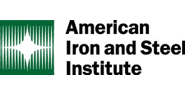Government/Policy

February 15, 2021
Big Changes to Section 232 Unlikely in Short Term: AISI CEO
Written by Michael Cowden
Big changes to Section 232 steel tariffs and quotas are unlikely in the short-term because of a backlogged Senate and because of a broader trade policy review, the head of the American Iron and Steel Institute (AISI) said.
One obvious hurdle to any big moves on the trade front: President Joe Biden does not have Senate confirmation for several key Cabinet positions, including Commerce Secretary, AISI President and Chief Executive Officer Kevin Dempsey said in an exclusive interview with Steel Market Update.
![]() “It’s important to get the new secretary confirmed … so they (the Biden administration) have the political leadership to tackle these types of issues,” he said. AISI, a lobbying group, represents the interests of U.S. steelmakers.
“It’s important to get the new secretary confirmed … so they (the Biden administration) have the political leadership to tackle these types of issues,” he said. AISI, a lobbying group, represents the interests of U.S. steelmakers.
President Biden has nominated former Rhode Island Gov. Gina Raimondo to be Secretary of Commerce. Dempsey said he hoped that Gov. Raimondo’s confirmation would occur “within the next few weeks.”
It will not happen this week because the Senate is not in session. And the Senate last week was occupied primarily with the second impeachment trial of former President Donald Trump.
Another big hurdle for changes to Section 232: The Biden administration has said it will undertake a comprehensive review of trade policies enacted by the Trump administration, including Section 232.
That review will involve White House and multiple government agencies. “It will take some time to undertake that review, to look at all the data. … So I don’t think there will be change in the near term,” Dempsey said.
The AISI in the interim remains confident that the domestic steel industry has a good case to make for keeping the tariffs in place. Namely, global steelmaking overcapacity remains a problem, and that “imbalance” has only become more pronounced in the case of China, which produced at record level in 2020 while much of the rest of the world saw output fall because of the COVID-19 pandemic, he said.
“Now is not the time to be lifting the steel tariffs,” Dempsey said.
The AISI is also not concerned about a supply chain review being undertaken by the Biden team. That’s because the review will probably focus on things like medical devices and semiconductors–namely, the chip shortage that has forced automakers across North America to temporarily halt production.
Discussions about Section 232 tariffs–typically 25% in the case of imported steel–are “probably a different process than this supply chain review,” he said.
The Coalition of American Metal Manufacturers and Users (CAMMU)–a lobbying group representing steel and metals consumers–wants Section 232 tariffs and quotas to be scrapped immediately. And the powerful Chamber of Commerce also wants to see the tariffs go, especially those placed on U.S. allies.
But the bipartisan Congressional Steel Caucus and key Biden supporters, such as the United Steelworkers (USW) union, want Section 232 to remain in place. Even the American Metals Supply Chain Institute (AMSCI), which opposes the trade action, thinks big changes are unlikely in the short-term.
In the meantime, U.S. flat-rolled steel prices are at all-time highs. Some market participants think they’ve flown so high–U.S. HRC prices were averaging $1,180 per ton ($59/cwt) when this article was filed–that steel buyers should be able to import steel, inclusive of the 25% tariff, at a significant discount to domestic mill offers of as much as $1,200 per ton.
By Michael Cowden, Michael@SteelMarketUpdate.com







